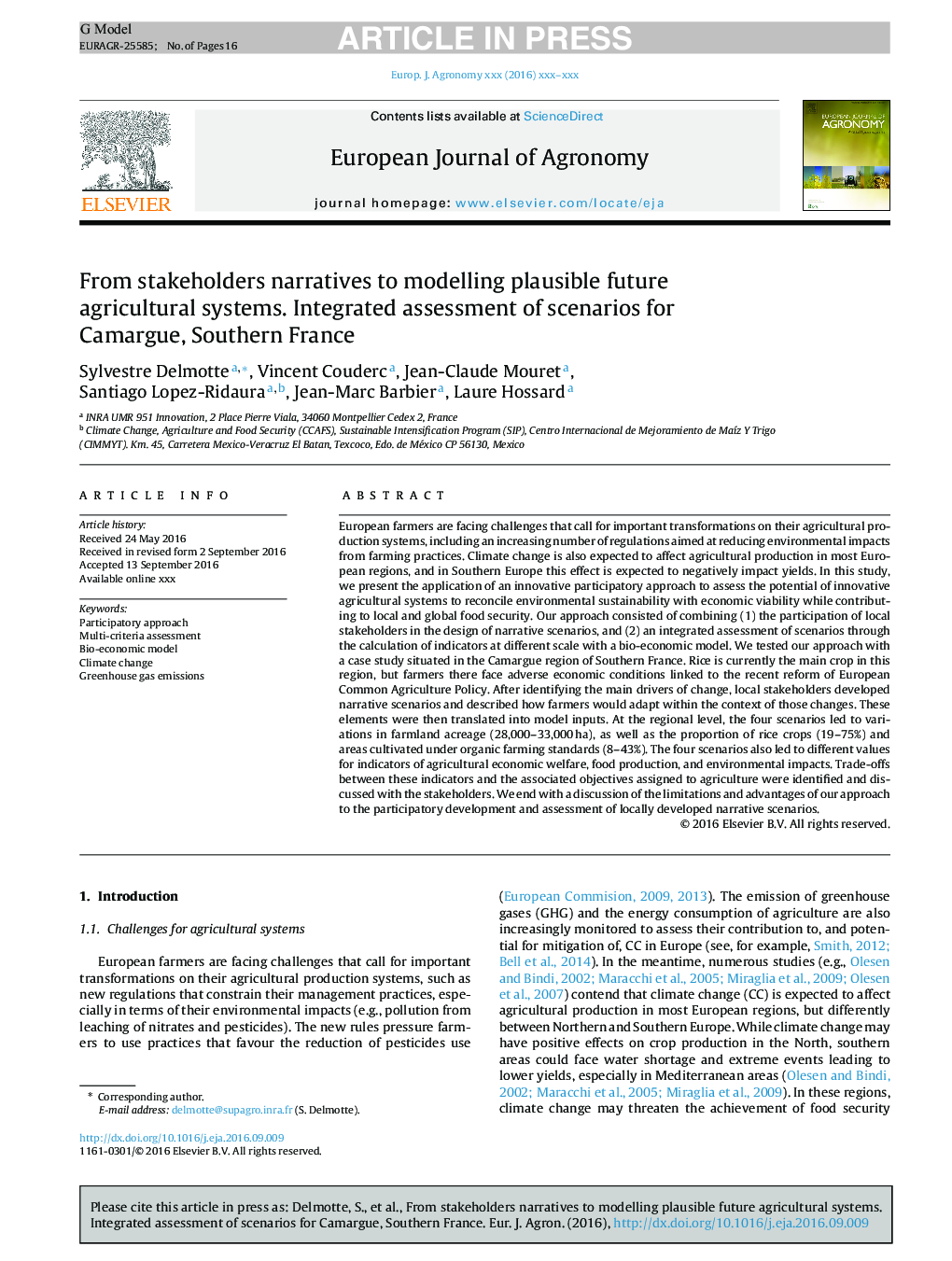| Article ID | Journal | Published Year | Pages | File Type |
|---|---|---|---|---|
| 5761313 | European Journal of Agronomy | 2017 | 16 Pages |
Abstract
European farmers are facing challenges that call for important transformations on their agricultural production systems, including an increasing number of regulations aimed at reducing environmental impacts from farming practices. Climate change is also expected to affect agricultural production in most European regions, and in Southern Europe this effect is expected to negatively impact yields. In this study, we present the application of an innovative participatory approach to assess the potential of innovative agricultural systems to reconcile environmental sustainability with economic viability while contributing to local and global food security. Our approach consisted of combining (1) the participation of local stakeholders in the design of narrative scenarios, and (2) an integrated assessment of scenarios through the calculation of indicators at different scale with a bio-economic model. We tested our approach with a case study situated in the Camargue region of Southern France. Rice is currently the main crop in this region, but farmers there face adverse economic conditions linked to the recent reform of European Common Agriculture Policy. After identifying the main drivers of change, local stakeholders developed narrative scenarios and described how farmers would adapt within the context of those changes. These elements were then translated into model inputs. At the regional level, the four scenarios led to variations in farmland acreage (28,000-33,000Â ha), as well as the proportion of rice crops (19-75%) and areas cultivated under organic farming standards (8-43%). The four scenarios also led to different values for indicators of agricultural economic welfare, food production, and environmental impacts. Trade-offs between these indicators and the associated objectives assigned to agriculture were identified and discussed with the stakeholders. We end with a discussion of the limitations and advantages of our approach to the participatory development and assessment of locally developed narrative scenarios.
Keywords
Related Topics
Life Sciences
Agricultural and Biological Sciences
Agronomy and Crop Science
Authors
Sylvestre Delmotte, Vincent Couderc, Jean-Claude Mouret, Santiago Lopez-Ridaura, Jean-Marc Barbier, Laure Hossard,
